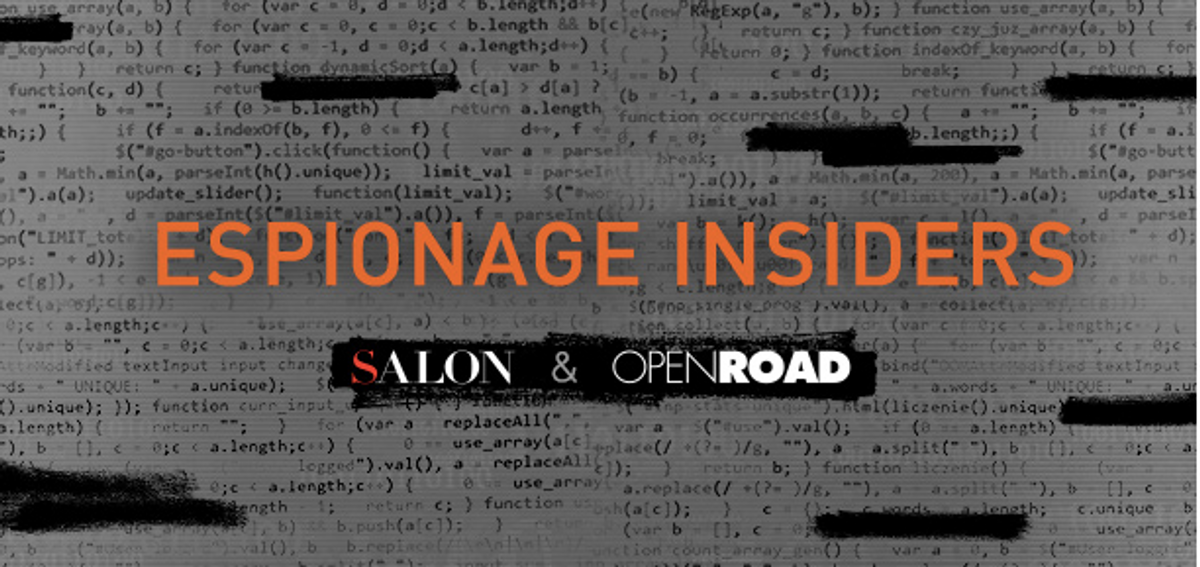Amy Webb can tell the future. She’s not going to read your palm or pull your cards—her kind of magic is the result of a uniquely devised methodology, and it’s startlingly accurate. The founder of The Future Today Institute, Webb works to recognize patterns, test trends, and predict what will happen next—and then develop strategies for dealing with what’s ahead.
“It is all data driven,” she says, explaining the complex science and precise information that goes into each study. “There are a lot of people who call themselves futurists, but those of us who do it seriously use data.”
Her utilization of data stands in stark contrast to what many believe: that our information is used against us, an idea aided by Edward Snowden’s massive NSA leak confirming that our government is, indeed, watching our every move.
Webb, for one, wasn’t shocked by what Snowden’s breach revealed. “It was not surprising to me at all to learn that we were being watched,” she says. “My assumption is that we are all being monitored.”
Now, though, she’s harnessed the power of information, transforming staggering amounts of criteria into prophecy, exploring the future of artificial intelligence, encryption, and information sharing—and that’s only the beginning.
So is it a fair trade—our future for our information? It may be—within reason. “In order to enjoy the conveniences that we do, we surrender a certain amount of privacy,” says Webb. Unless you’re willing to go without your favorite technologies, including the phone you may be reading this on, it’s best to understand that a User Agreement is a quid-pro-quo arrangement you are actively accepting.
What’s the good news? There’s plenty and—much like you—Webb is sharing.
Data is Already Changing Everything—Including Medicine.
“Think about what happened in Japan with IBM’s Watson,” Webb says, referencing the diagnosis of a patient’s mysterious illness after doctors used data and the AI system to pare down potential causes. “His condition was so rare, physicians didn’t think of it. Watson was able to narrow down the probability of conditions, leading to a diagnosis.”
The utilization of medical data and the involvement of AI is revolutionary. “I call it ‘crowd learning,’” says Webb. “It is a vast amount of information collected and put into a system. Imagine you need an MRI on your shoulder, suspecting a tear in your rotator cuff. The radiologist looks for the tear, but that scan holds a great deal of information that can be extremely useful somewhere else.”
As with every element of personal data, Webb insists that the information must be managed carefully. “If it is [anonymous] with no identifying factors…it helps everyone for this data to be collected.”
No One Can Steal Your Body Waves (Yet)
What’s the next wave of digital security? Hint: It’s coming from you. “For so many people, things like iris scans [for authentication] seem technologically forward and scary,” says Webb. “For me, iris scanning is old hat. I am looking at neuro scanning, and verification based on the way that your body interacts with a WiFi signal.” Your body is, it seems, the next frontier in digital verification.
We are Safer
Now that Edward Snowden has proven just how much our government was watching its citizens, can we stop it? The answer may be that we don’t want to. “You can not have a safe and secure nation without infringing on privacy in some way,” she says. “I feel like there is a tension between my expectation of security and safety and my expectations of privacy living in the U.S…The truth is that most people are not criminals, and for the most part the information that is collected becomes irrelevant.”
Where Webb does have concern, however, is the accuracy of certain methods of surveillance, such as facial recognition technology, which has evolved to reveal flaws that link back to the original code. Her solution isn’t an easy one, but it is essential: “We need to go back and look at how those algorithms work.”
You Have More Control Than You Think
“I don’t think it’s prudent to put your head in the sand and say [data collection] is all evil and bad,” cautions Webb. Instead, she suggests a smart approach to protecting yourself. “Change your passwords—often. Make them completely unintelligible and extremely long...Easy, common sense solutions.”
And, know what you’re agreeing to. “I tell people to open Google’s settings, particularly if they are on Android. Most don’t realize that it’s tracking everywhere they go.”
Does she worry about being followed? “I use Google Calendar, because it’s easy to use. That means I am allowing Google Systems to follow my whereabouts. My assumption is that what I am doing is just not that interesting.”
Amy Webb is a Futurist and Founder of The Future Today Institute, a research and advisory organization that predicts trends for The State Department, private banks, private universities, national media outlets, and more. To learn more about their work, click here. Ms. Webb’s perspective is offered as part of a four-part series by Salon.com on behalf of Open Road Studios in celebration of the film SNOWDEN, in theaters September 2016. To read more in this series, start here.



Shares